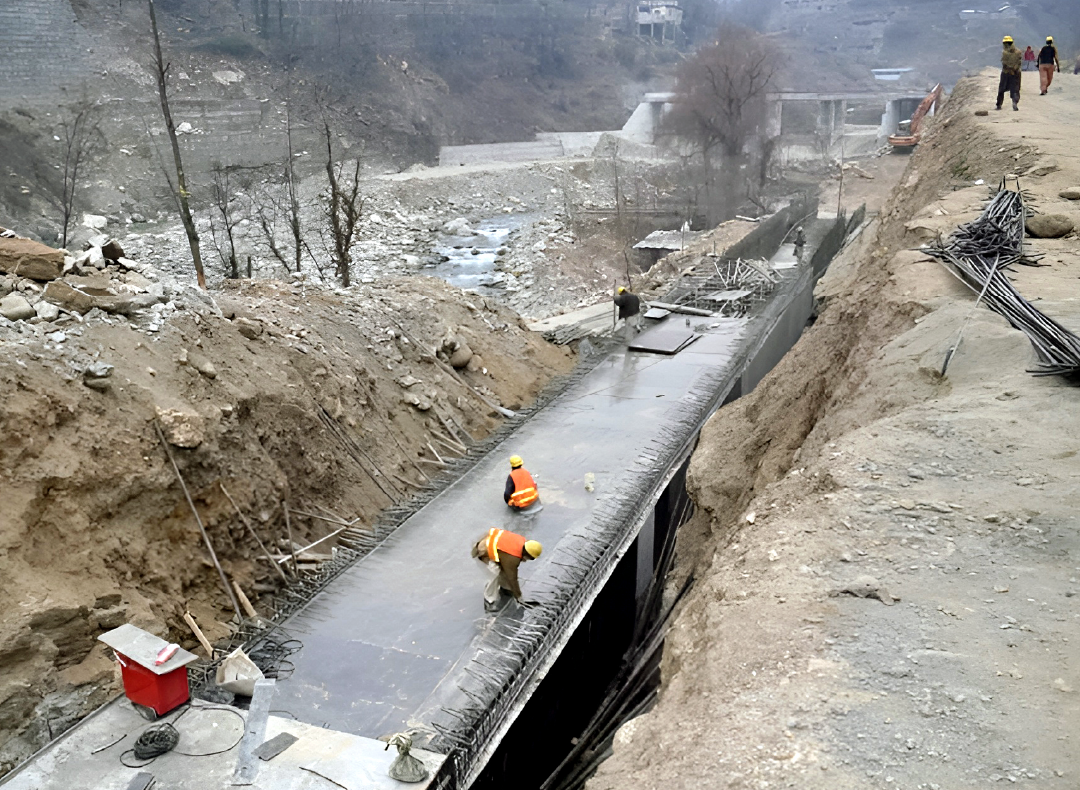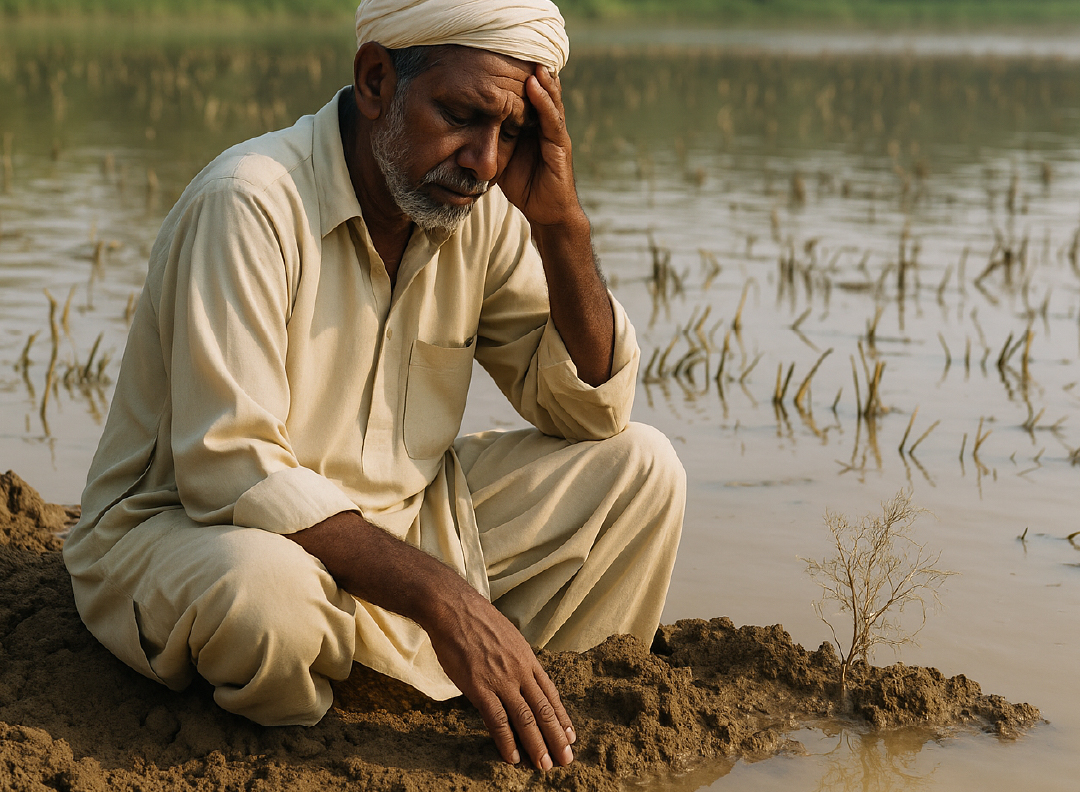The locals hold protest against the project after unkept promises and betrayal by the government
Last month, the diversion of the water of the mountain stream (Kana Khwar) to test the tunnel of the under-construction Karora Hydropower Project in Shangla district left the entire area without electricity.
The locals, fed up with the intense heat as well broken promises made to them regarding the project, blocked the Swat Road in protest and forced the officials to stop the work on the project.
The population of this area, called Kuz Kana, consisting of thousands of people, gets electricity from small private hydroelectric plants established on Kana Khwar. As soon as the water was diverted into the tunnel, the water level in the stream decreased and the production of all private turbines stopped.
People who were already concerned about the project were further disturbed by the hours-long power outages.
The Khyber Pakhtunkhwa government is constructing this 11.8 MW hydropower plant about 16km north of Bisham city (Karakoram Highway), near Karora Serai village, at some distance from the Swat Road.
This power project is being built on the mountain stream ‘Kana Khwar’ in the sub-tehsil of Kana, whose water flows through specific channels into Khan Khwar, a tributary of the Indus River. The dam of this power project has been constructed at Kuz Kana village and the power station has been constructed 5.5km downstream at Marin.
The water from the dam will be brought to the sand trap through an underground tunnel about three kilometers long, which will reach the turbine generators of the powerhouse through the headrace tunnel. That is, now the water will flow directly from the dam to Khan Khwar via the tunnel and power station. The electricity generated from here will be fed into the national grid through a 132kW double circuit transmission line from Bisham Qala.
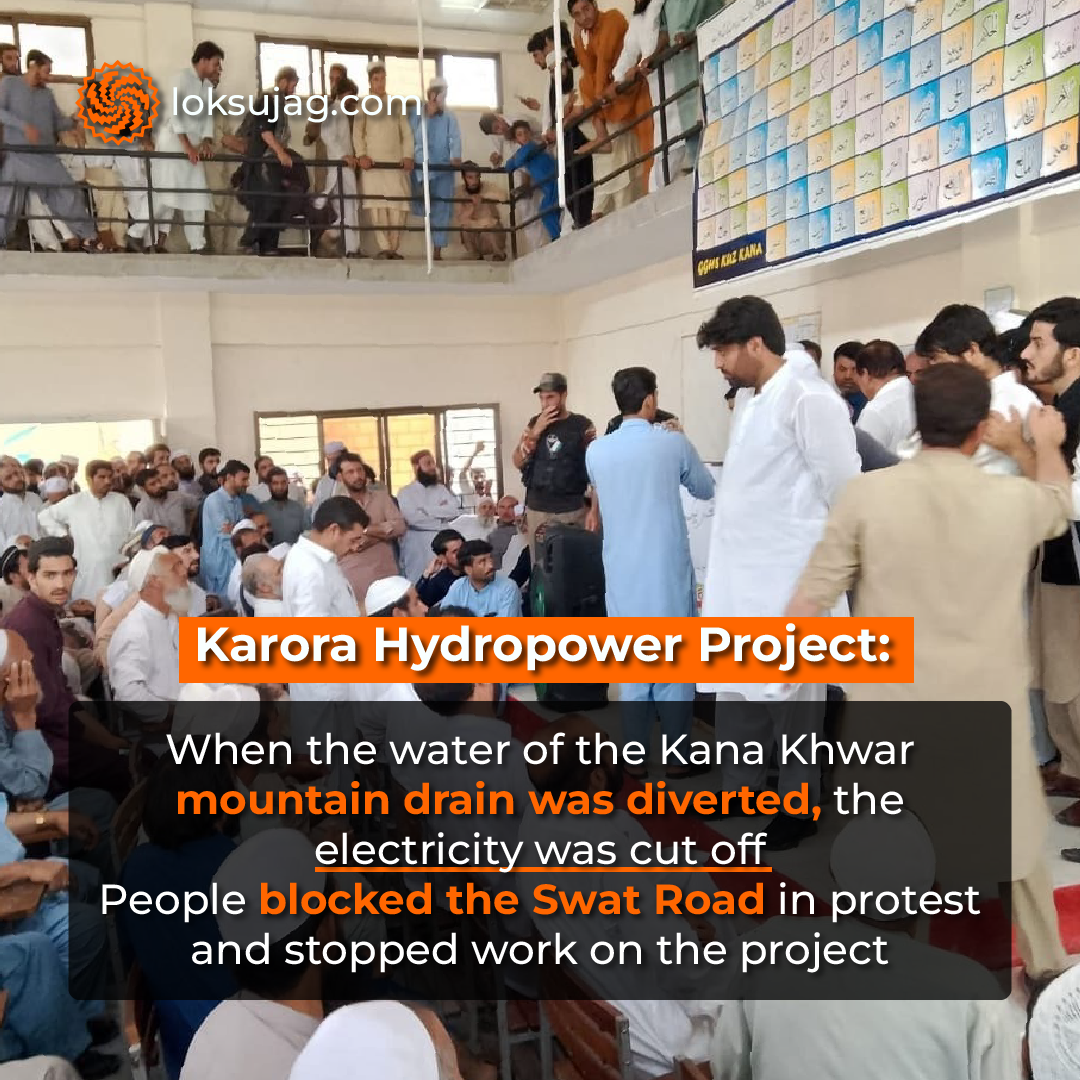
14 small private power plants and 12 watermills will become inoperative
The provincial department Pakhtunkhwa Energy Development Organization (Pedo) started the construction of Karora Hydropower Project in 2014, which was to be completed in 2018. But it kept getting delayed, but now about 97pc of the work has been completed.
The feasibility report of this project was prepared by Pedo in 2011, which estimated the cost at over Rs2.26 billion. However, the revised PC-1 has estimated the potential cost, including the transmission line at Rs4.62 billion.
The 72 MW Khan Khor Hydropower Dam has already been built at Ranial, one kilometer below where the water of the Kana Khwar stream flows into the Khan Khwar River. For this, the river water was also diverted into a tunnel.
The Khan Khwar Dam was built in 2012, and then the people living on both sides of the river from Ranial to Bisham (the end point of Khan Khwar), i.e., in an area of 15km, were deprived of its benefits. Like some other projects in this area, the environmental and social impact report was never released. However, according to the Shangla Revenue Department, the project has affected many homes. Tunneling the Kana stream will stall the operations of 14 small private power plants and 12 watermills.
Tajbar, head of the Karora Project Victims' Committee, says that agricultural lands on both sides from Kuz Kana, Chilai to Serai, will not only be deprived of irrigation channels and resources, but also the availability of water for drinking and domestic use will become difficult. Along with crops like corn and wheat, 72 kanals of persimmon and pear orchards will also be destroyed.
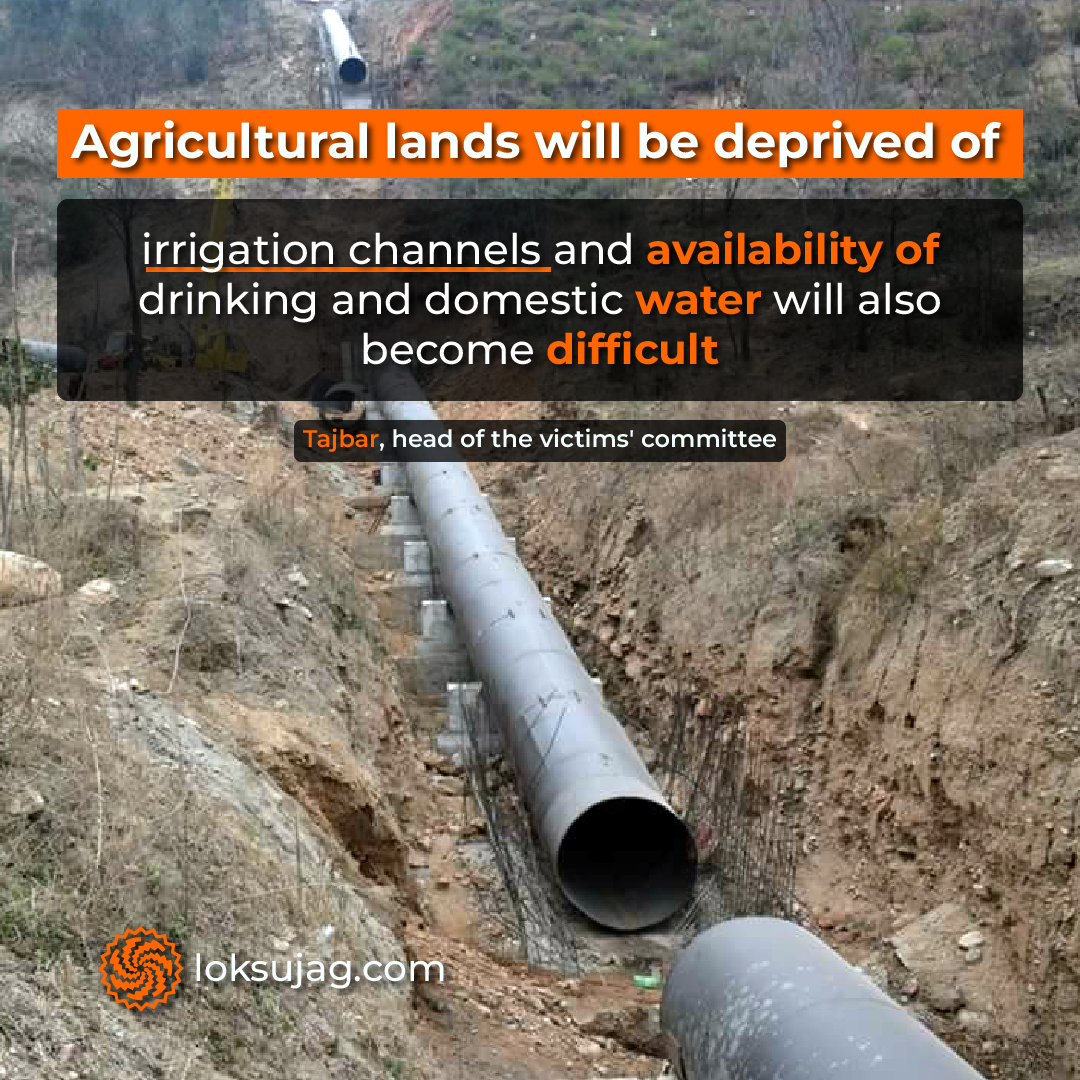
Private power plants supply cheap and uninterrupted electricity
Apart from this, the locals also seem worried about their livelihood. Abdul Rehman of Kana Kuz has been running two micro hydroelectric power plants and two windmills on the Kana Kuz River for the last 20 years. He has provided interrupted electricity supply to more than 250 houses located on the hilltops for just Rs400 to Rs700 per household. He is now concerned about the future of his family’s livelihood when the Kana Kuz River dries up in the next few months.
“During the survey of the Karora project, the Pedo officials made tall claims and promises, but now it’s clear that have been cheated. But we can do nothing now. We are helpless about what has happened.” Taj Bar, the head of the victims’ committee, also has two power plants and he has given 390 connections. He also charges Rs400 to Rs700 per household. He earns Rs400,000 per month by combining the income from the plants.
“Wapda (Water and Power Development Authority) can never provide such cheap electricity to the residents here without interruption. We have seen Wapda consumers in nearby areas suffering from loadshedding during intense heat,” says Taj.
Abdul Rehman says that Wapda’s infrastructure in sub-tehsil Kana was destroyed during the 2010 floods. Since then, the 200,000 population here has been dependent on local private power plants.
“Now, the 60,000 population of three union councils of Ranial, Kuz Kana and Opal will be deprived of electricity as well as the facilities of private micro-power plants due to the Karora project. We have got nothing in return.”
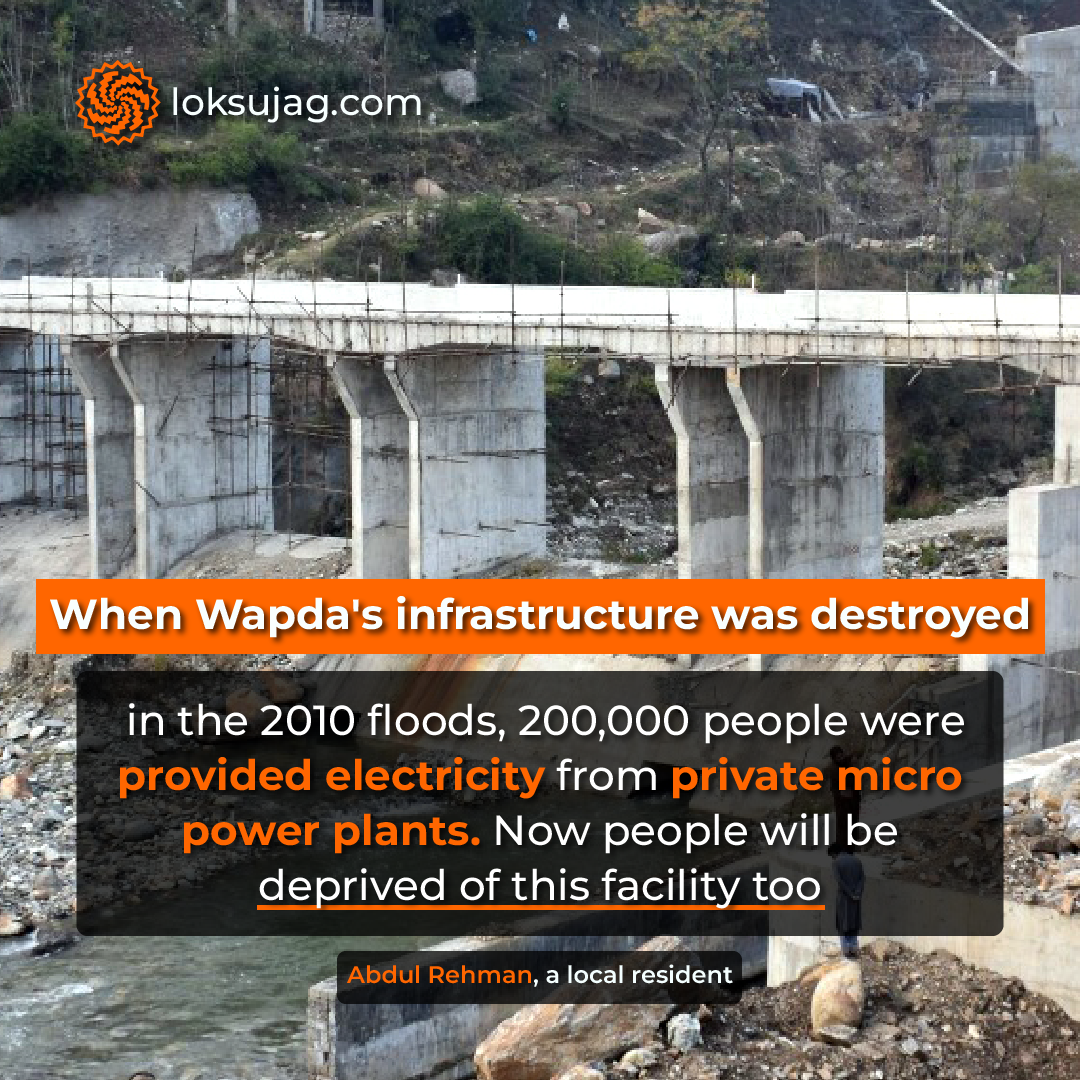
16 dried-up springs and unkept promises of water supply
Mian Sohrab, a resident of Kuz Kana, Borshat, says that the people of the three union councils have installed motors in the river for drinking water from which water is supplied to the houses in tanks. He fears that this supply may also be affected due to this project.
Nisar Ahmed lives in the village of Dunai, with a population of 30,000, located on a hill above the dam tunnel. He says that when work on the tunnel started in 2015, there were 16 springs around the village, but now the entire population is scrambling for water.
“Some of these springs have dried up and the water from the rest is going into the dam. We, the villagers, bring drinking water from far away on vehicles and donkeys, while the project authorities have not even fulfilled the promise of the water supply scheme.”
In fact, on Feb 25, 2015, a written agreement was signed between Pedo Director Muhammad Shafi and a six-member committee of locals, led by Haji Tajbar.
The agreement included several points such as payment of compensation, release of adequate water into the river, provision of subsidised electricity to UC Ranial, Opal and Kuz Kana, immediate implementation of water supply scheme and construction of embankment to protect the remaining agricultural land.
However, according to the victims, the government has not fulfilled any promise except payment of compensation for the affected houses and micro-power plants, etc.
According to a member of the victims’ committee, the project, including the testing of the tunnel, is now almost complete.
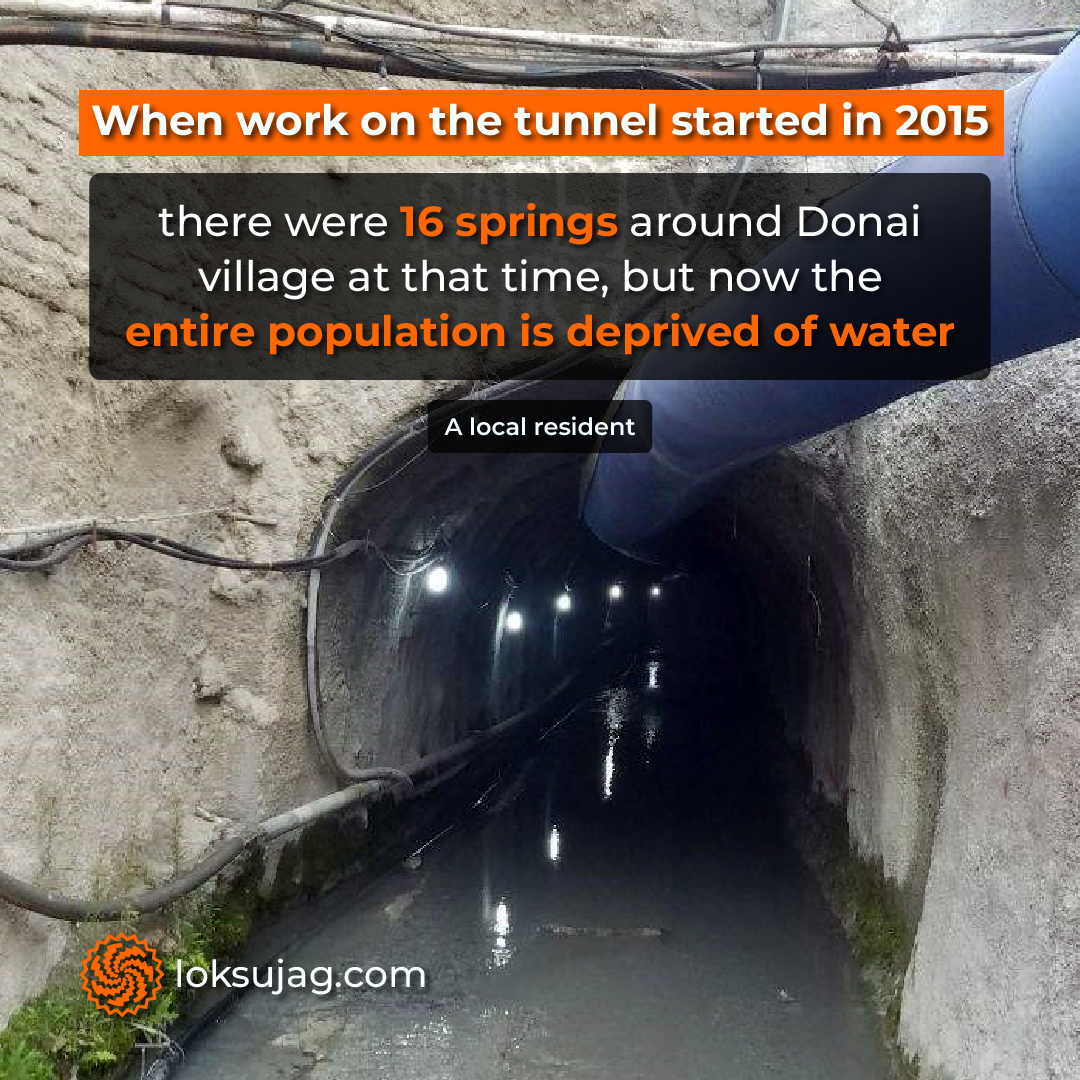
Another agreement of the government with the victims
These hydropower project affectees met Amir Muqam, the Member of National Assembly from Shangla, on July 5, asking him to resolve their problems, but according to them, the politician did not give them any encouraging response.
Gul Muhammad says that according to clause number 3 of the 2015 agreement, electricity will be provided to the three affected union councils at generation rates under the Kohistan-style mechanism, the final decision of which will be made by the deputy commissioner.
It should be noted that the government has already made an agreement to provide subsidised electricity to the victims of power projects in three districts of Kohistan (Upper, Lower Kohistan and Kolai-Palas).
Since the dispute over the Karora project is now escalating, the victims called a 'Shangla National Jirga' last week. Provincial Energy Minister Tariq Saduzai, Deputy Commissioner Fawwad Khan, Pedo Chief Executive Irfan Wazir and others also participated in the jirga.
After the negotiations in the jirga, a new agreement was signed between the affected people and the provincial government, under which the government has assured the immediate launch of new schools, infrastructure and water supply schemes in the three affected union councils.
Approval was also given to set up new micro and mini hydel projects in the affected union councils. Furthermore, it was agreed to provide electricity to the local population at low rates and to lay Pesco transmission lines.
A committee has been formed under the auspices of the deputy commissioner for this purpose. However, the DC says that Pedo officials have told him that providing subsidised electricity is not possible because the provincial government has neither its own transmission network nor the authority to reduce rates.
Published on 18 Jul 2025
